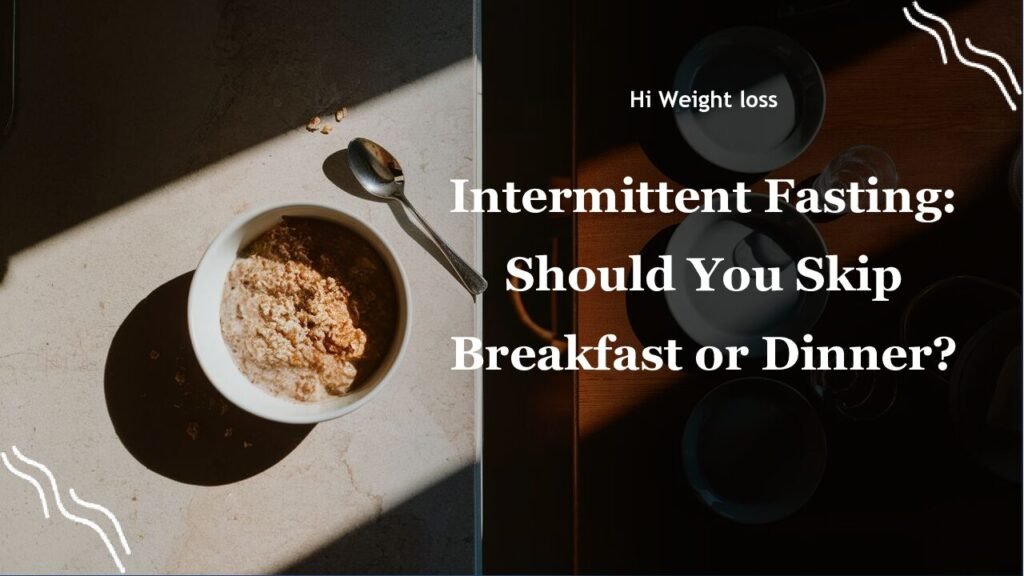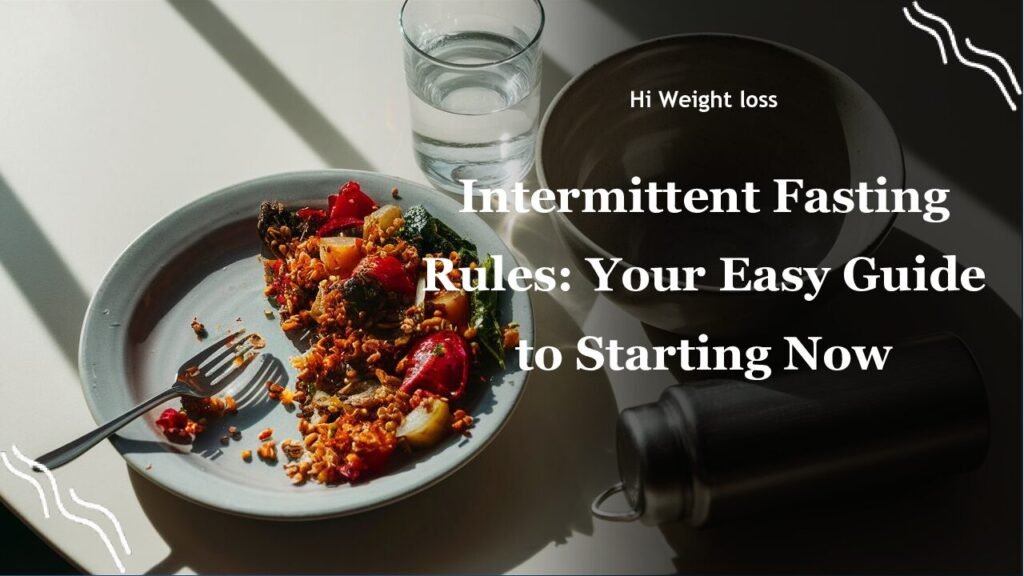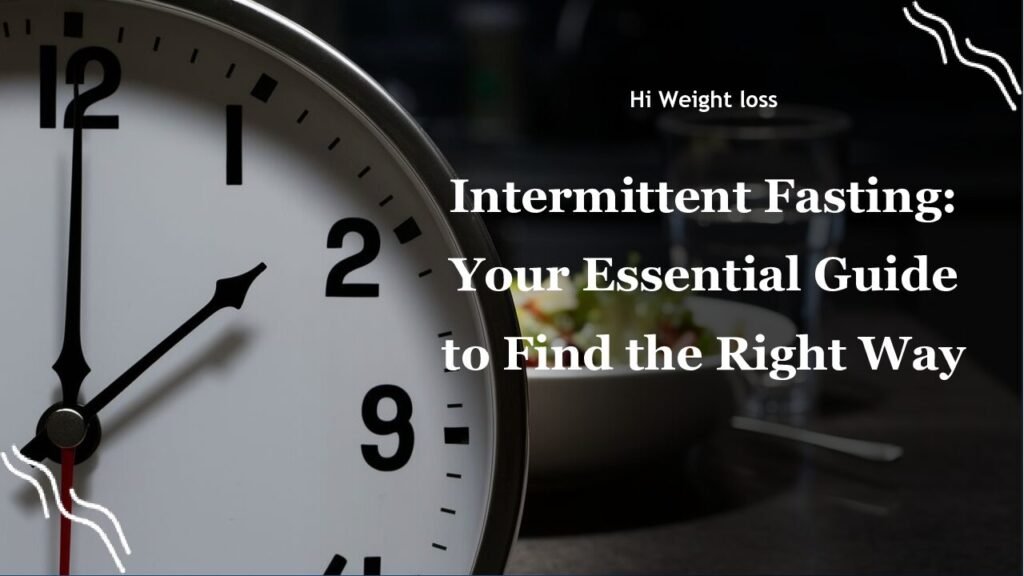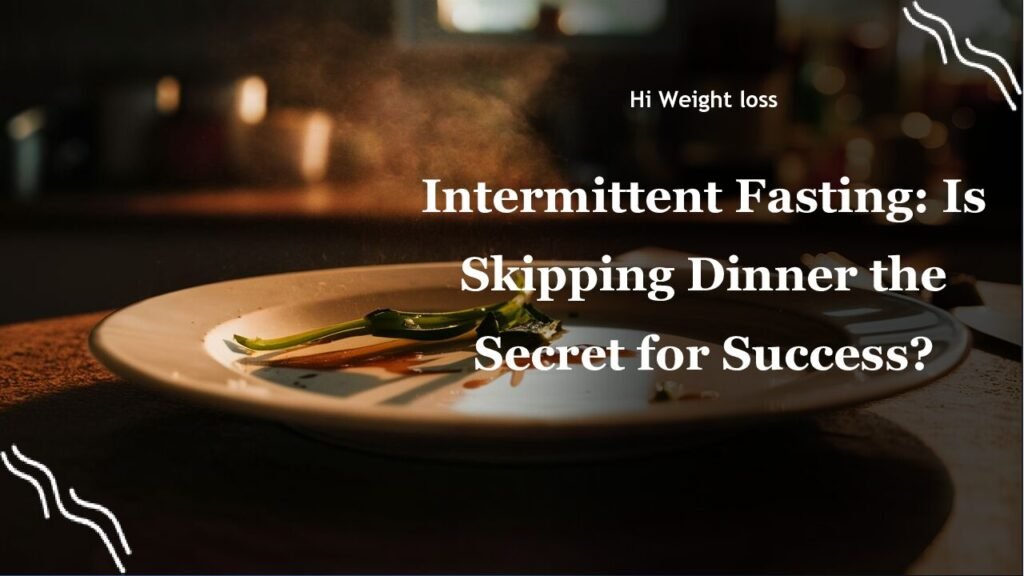“`
Feeling confused about the best way to do intermittent fasting? Many people struggle with choosing between skipping breakfast or dinner, wondering which is the better approach for weight loss. It can be overwhelming trying to figure out what will work best for *your* body. Let’s dive into the facts and experiences to see how these different approaches might fit into your lifestyle.
Is it better to skip breakfast or dinner in intermittent fasting?
The Great Intermittent Fasting Debate: Breakfast or Dinner?
When it comes to intermittent fasting, a common question arises: is it better to skip breakfast or dinner? There’s no single right answer, and the optimal choice depends on individual preferences and goals. I remember when my friend Sarah started intermittent fasting. She initially skipped breakfast because it fit her schedule better. However, she found herself struggling with late-night cravings. Ultimately, she switched to skipping dinner and had much better success.
Let’s break down the pros and cons of each approach.
The Case for Eating an Early Breakfast
Recent studies suggest that eating an early breakfast, specifically before 8:30 a.m., can have significant metabolic benefits. These benefits aren’t just for those on a set eating window; even people with longer or shorter eating windows may find improvements in their metabolism. Research indicates that an early breakfast might reduce insulin resistance. That’s pretty powerful!
This isn’t to say that late breakfasts are bad, just that early ones may have an edge. The idea is to align your eating schedule with your body’s natural circadian rhythm, which can improve various metabolic functions. When I tried this, I noticed that I felt more energized throughout the morning. It’s amazing how such a simple shift can make a difference.
Why Skipping Dinner Could Be Your Best Bet
Now, let’s talk about skipping dinner. For some, this approach is much more effective for weight loss. Think about it – having an early dinner and starting your fasting period allows you to avoid late-night snacking. It’s no secret that a lot of people do their worst eating after dinner, so cutting out this meal could help you eliminate those empty calories. Plus, skipping dinner might improve your digestion. If you are like my old roommate, who used to get heartburn if she ate too late, she should probably choose to skip dinner in intermittent fasting, based on this.
This approach could be particularly beneficial if you’re prone to late-night cravings or have digestive issues after eating close to bedtime. I have a friend, Mark, who always said that skipping dinner meant fewer chances to go back for seconds (or thirds!). It seems like a good strategy for people who want to keep things simple and easily implementable.

Balancing Your Fasting: Finding What Works for You
Ultimately, the best way to do intermittent fasting is to personalize it to your individual needs. There isn’t a ‘one-size-fits-all’ solution. You might be wondering, “Which should I choose?”. It truly depends on your lifestyle and preferences. Do you tend to get hungrier in the mornings or evenings? What’s more practical for your work schedule and social life? These are all important questions to consider.
Keep in mind that neither skipping breakfast nor dinner is superior by default. Both can lead to positive outcomes, but they also come with their own set of potential downsides. For example, skipping breakfast might lead to extreme hunger later in the day, potentially causing you to overeat when your eating window arrives. Similarly, skipping dinner could make your social life more difficult and make you feel deprived in the evenings. This happened to my sister when she tried skipping dinner, and so she decided that maybe she wasn’t ready for that approach. It’s really a very personal experience.
Key Factors to Consider When Choosing Between Breakfast and Dinner
It’s not just about which meal to skip; it’s about how you manage your overall eating habits. Here are some things to think about:
Your Daily Schedule: What times are you naturally hungriest? Do you have social commitments that might make it hard to skip dinner?
Your Body’s Signals: Do you experience hunger pangs if you skip breakfast, or do you feel more energetic? Pay attention to what your body tells you. Sometimes, it’s about letting your body be your guide.
Your Health Goals: Are you primarily focused on weight loss, or are you more interested in improved metabolism and insulin sensitivity?
Consistency: Pick a pattern that you can stick with, since this consistency is more important than whether you skip breakfast or dinner.
The Science Behind the Decisions
Let’s take a quick look at the science. Studies on early breakfast consumption and its effect on metabolism are becoming more common, providing solid evidence for benefits such as reduced insulin resistance. On the other hand, studies about the benefits of skipping dinner show that this approach promotes weight loss and better digestion. But the key here is not to think that one option is completely superior to the other; it is more about what works best for you.
Intermittent fasting is not magic; it’s a tool that can be very effective if you know how to use it right. It is good to understand these concepts so you can use this tool with flexibility.
Potential Pitfalls and How to Avoid Them
No matter which approach you choose, there are potential pitfalls to watch out for. Here are a few common mistakes and how to avoid them:
- Overeating During Eating Window: If you are too hungry, you might be tempted to overeat during the eating period, so planning your meals ahead of time might be a good approach.
- Extreme Hunger: If you’re struggling with intense hunger, try drinking water or other calorie-free drinks to help, or evaluate if you can adjust your fasting pattern.
- Nutrient Deficiency: Make sure that during your eating period you consume enough nutrients, whether you choose to skip breakfast or dinner.
These points are crucial, since intermittent fasting can have negative effects if not done well. You can have a much better experience if you plan things well.
Making the Best Choice for Your Intermittent Fasting Journey
So, which meal should you skip? The answer is really: the one that best suits *you*. If you are comfortable eating an early breakfast, and you don’t crave food in the evenings, that could be a great approach. If you are the opposite, and you have your largest appetite in the morning, then skipping dinner might be a better fit. Be sure to make your decisions based on your body, lifestyle and your preferences. You might also want to talk to a medical professional to get personalized advice.
Remember, the key to success is not just about what you skip, but how you nourish your body during the eating window. Choose nutrient-dense foods that will keep you feeling satisfied and energized. And most importantly, be kind to yourself and adjust as needed along the way.
| Aspect | Eating Early Breakfast | Skipping Dinner |
|---|---|---|
| Potential Benefits | Improved metabolism, reduced insulin resistance | Weight loss, improved digestion, avoids late-night snacking |
| Potential Drawbacks | May not work if you are not a breakfast person | May be hard on your social life, might lead to cravings |
| Ideal If | You prefer to eat breakfast and don’t crave food at night | You prefer to eat later in the day and are prone to late night snacks |
Conclusion
Deciding whether to skip breakfast or dinner for intermittent fasting really comes down to individual preferences and what aligns best with your lifestyle. Eating an early breakfast may boost your metabolism and reduce insulin resistance, while skipping dinner can help with weight loss and digestion. It’s really a personal choice. What works best for you may not be the same as for someone else. The most important thing is to listen to your body, be consistent, and make sure you’re getting proper nutrition during your eating periods. Remember my friend Sarah? It was by trying both and making adjustments that she found her best path. Now it is your turn to try it!
If you found this helpful, why not share it with a friend who might be struggling with the same dilemma? And if you’ve had any experiences with intermittent fasting, do share them below in the comments!
FAQ
Is it healthier to skip breakfast or dinner?
It really depends on individual needs and preferences. Both strategies can be effective, but neither is universally superior. If you do decide to skip dinner, make sure you plan your meals carefully so you don’t overeat later.
Can skipping breakfast lead to overeating?
Yes, it can, especially if you are not used to skipping breakfast, so you’ll need to pay attention to your hunger levels. If you tend to overeat after a longer fast, you might want to reconsider your fasting patterns.
How can I avoid late-night snacking when skipping dinner?
Try to keep yourself busy and distract yourself so that you don’t focus on food. Drinking water can also help to curb cravings. Also, having a filling and nutrient-dense early dinner is beneficial for many people.
How do I know which intermittent fasting pattern is right for me?
Start by trying different patterns, listening to your body’s signals, and adjusting based on your personal experience. It may take a bit of experimentation to find the optimal approach that fits your lifestyle and goals. Always consult with a healthcare professional if you have any concerns or specific health conditions.
Is intermittent fasting safe for everyone?
While intermittent fasting is generally safe for most healthy adults, it may not be suitable for everyone. Individuals with certain health conditions, pregnant women, or those with a history of eating disorders should consult with a healthcare professional before trying it. If you have any doubts, don’t hesitate to ask.
“`



